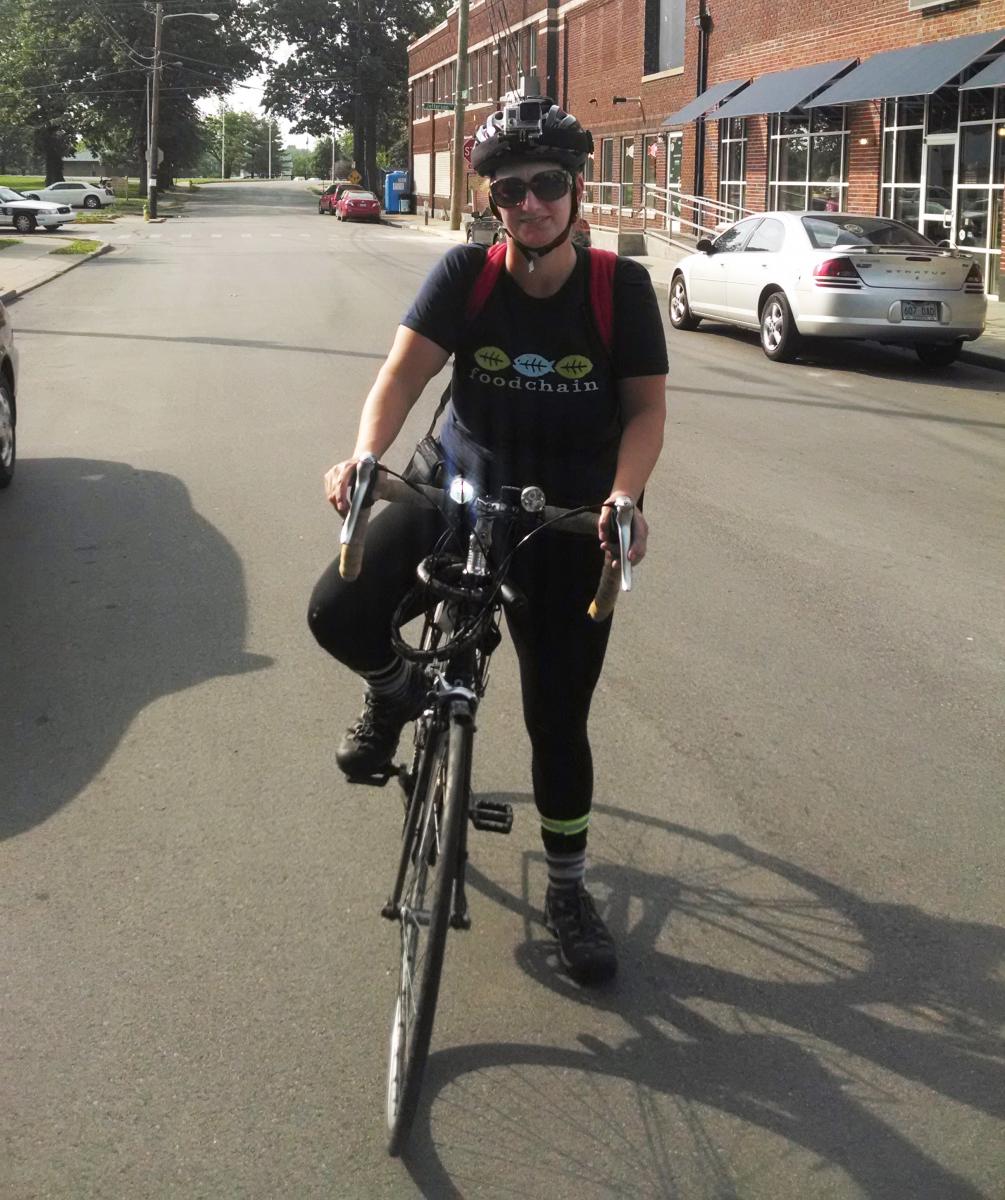DISCOVER YOUR LOCAL BICYCLING COMMUNITY
Find local advocacy groups, bike shops, instructors, clubs, classes and more!
Schill Case: What Now?
 Earlier this week, Steve Clark gave a powerful first-hand account of riding with Cherokee Schill in the exurbs of Lexington, Ky., putting a real human face on the sometimes abstract concept of bicyclists’ rights. Ken McLeod followed up with a deep dive into the legislative and regulatory environment that make her case challenging and somewhat unique — thank you, the Commonwealth of Kentucky. Now, what do we do about it?
Earlier this week, Steve Clark gave a powerful first-hand account of riding with Cherokee Schill in the exurbs of Lexington, Ky., putting a real human face on the sometimes abstract concept of bicyclists’ rights. Ken McLeod followed up with a deep dive into the legislative and regulatory environment that make her case challenging and somewhat unique — thank you, the Commonwealth of Kentucky. Now, what do we do about it?
We have chosen not to actively support Cherokee Schill’s case. That’s not because we don’t believe in her right to the road or that she isn’t a woman of remarkable fortitude to do what she is doing every day. The League has a network of lawyers that has discussed this case — and one of the members of the group represented Cherokee in court — and helped us determine that a) this was not [yet] a case that would set a national precedent and b) this was not a good test case or cause celebre to adopt in order to protect or enhance our rights to the road. That threshold has been passed before — hence our involvement in a case in the Kentucky Supreme Court a decade ago and in suing the Florida DOT for failing to follow their own design guidelines five years ago.
There’s no question that Cherokee Schill’s ride is horrible and she takes a lot of abuse from motorists and now the local police are on her case. None of that is acceptable –- we shouldn’t be building roads that are so inhospitable to people riding bikes; motorists should pass her safely; the laws in Kentucky should give her the freedom to ride where she determines it is safe; and the police should not be selectively enforcing an outdated traffic code. These are the issues the League is working on every day, through all of our programs.
The outcome we want is for Cherokee Schill — and everyone else — to have a decent place to ride a bike, a realistic alternative to riding in the travel lane of a 55 mph busy multi-lane rural highway. We’re submitting comments on changes to the Kentucky statutes and regulatory language and will support the new KYBikes group and Bluegrass Cycling Club in their work locally to improve road design, DOT policies, etc. Cherokee’s case is a perfect example of how the system has failed bicyclists and left people with horrible choices — and defending her right to choose one horrible option over another doesn’t seem like much of a win.
What if we were able to help her win in court? She would still have a horrible ride, she would still get abuse from motorists and she would continue to be only person to have the courage or skill necessary to keep riding there every single day. The shoulder would remain in terrible shape and few if any other people would ever ride there. There’s a better than average chance that local law enforcement or county officials would find a way to force her to use the shoulder or ban cyclists from the road altogether and her victory would turn out to be pretty hollow on many levels.
I was thinking about Steve’s ride with Cherokee. At the end he says he rode back in the travel lane because the shoulder was not that great and was intermittent. I suspect I’d probably do the same. Once. There are places in Fairfax County, Virginia, where I live that I’ll ride every now and then by taking the lane through multi-lane high speed interchanges with turn lanes and on- and of-ramps and such — and I grit my teeth, steel myself for battle, and go for it. But I would never do that every day — it’s not normal behavior, it doesn’t feel safe, and it I can’t believe that we’ve built our roads this way. The League is working towards a world where it doesn’t take courage to ride your bike.
P.S. Thanks to those of you wrote to me in advance of this post -– courtesy of a Facebook campaign last night. The group slogan — “Bicyclists Belong in the Travel Lane” — is too dogmatic and we simply don’t believe that granting someone the ability to ride in the travel lane of a 55 mph, multi-lane suburban highway –- let alone suggesting that’s always going to be the best and proper place for people to ride –- is an acceptable end-game. It’s not nearly enough. 99.9% percent of people will never choose to do that, and our mission is to lead the movement to create a more Bicycle Friendly America for everyone. Everyone.